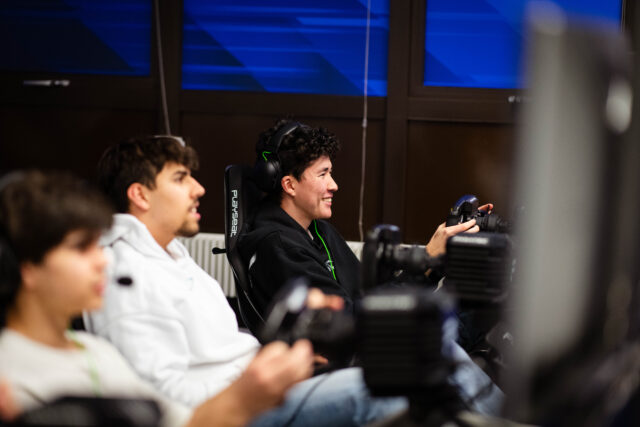06/03/2025
5 Critical Questions Labour Must Address for the Future of Education
By Dr Robert Harrison, Director of Education and Integrated Technology at ACS International Schools
It is no secret that our world is rapidly changing. So much so that The World Economic Forum has declared an ‘upskilling emergency’ in which we may see the loss of 1 billion jobs to artificial intelligence (AI) by 2030. In tandem, it is expected that more than 97 million new, unknown jobs will emerge over the next decade.
Despite this uncertainty, one thing remains clear – education needs to keep up. But how can schools, from preschool to higher education, remain organised and keep curriculums consistent when a large proportion of everything we currently know will need to be relearned? It was a question posed at ACS International Schools’ recent Future-Ready Forum where the future of education was heavily discussed and debated. Education has struggled to adapt to a VUCA world — one that is volatile, uncertain, complex, and ambiguous. Now, as the world shifts to an even more challenging BANI framework — brittle, anxious, non-linear, and incomprehensible — we must think strategically to equip young people to thrive in the future.
And so, to achieve this, Labour must consider the following five areas when discussing education reform in England.
How will courses focus relentlessly on critical and creative thinking?
Whether we’re teaching these key future skills subtly or more directly, we have to be more intentional about it; the majority of employers are crying out for them! Furthermore, we must shine an even brighter light on how we go about our own critical and creative thinking as educators, evaluating its biases and teaching students to understand human brain-based cognition with all its wonder and worry.
How will we cope with the uncertainty that comes with rapid change?
This is, simply because, we don’t have all the answers yet. To some extent, educators already live in this ‘maybe’ world because we want students to use their imagination, and we can’t see into their future or the worlds they will inhabit. But because of this, we must be even more comfortable with maybe, especially in a BANI world. We, therefore, need to give young people the opportunities to explore different ideas in different environments so that they can decide what works for them.
How will we help students build personal and educational resilience?
It is vital that we create safe spaces for students to fail, with consequences that aren’t life threatening of course. This could mean that we cede an element of control in the classroom, become more comfortable with students who want to follow less structured or less popular pathways, be open to unusual propositions, and welcome off-the-wall ideas. This teaches students how to learn from their mistakes and fosters a resilient mindset that values persistence. If predictions of the future have taught us one thing, it is that there will most definitely be change and potential setbacks that must be managed. Surely school is the place to learn how.
Who’s going to teach students what it means to be authentically human?
It is clear that AI is here to stay, with billions being invested in ways to increase automation, creativity, and efficiency. Therefore, do not shy away from AI. Explore it together with your students, understand how it works, experiment with cautious optimism, learn to use it responsibly to your advantage.
However, remember that we are human; AI can mimic human emotions, but it does not possess emotions and emotional intelligence like humans and teachers do. So while AI and other technology can be a valid part of any educational strategy, educators still need to be at the forefront of offering emotional support and fostering personal connections with students.
Where will we find space to rethink our understanding of achievement, attainment, and qualifications?
It is always a temptation to assess what’s easy, rather than what’s essential. Shame does not lie with teaching to test if it is the right one. We need to ensure that we are giving students the tools to leave education as empowered individuals, who not only have the academic knowledge but the emotional intelligence to engage with future big ideas and issues. Surely, now more than ever, the emphasis needs to be on developing well rounded individuals with a global mindset rather than the well-trodden path of lock-step, knowledge-only, paper-and-pencil examined achievement?
School can no longer be an extended exercise in working out how well children can memorise the instructions on how to build a one-size-fits all lifeboat. We have to make them lifelong shipwrights with practiced skills, courage, and insight into the principles of naval architecture they’ll need to navigate some rough seas ahead.





